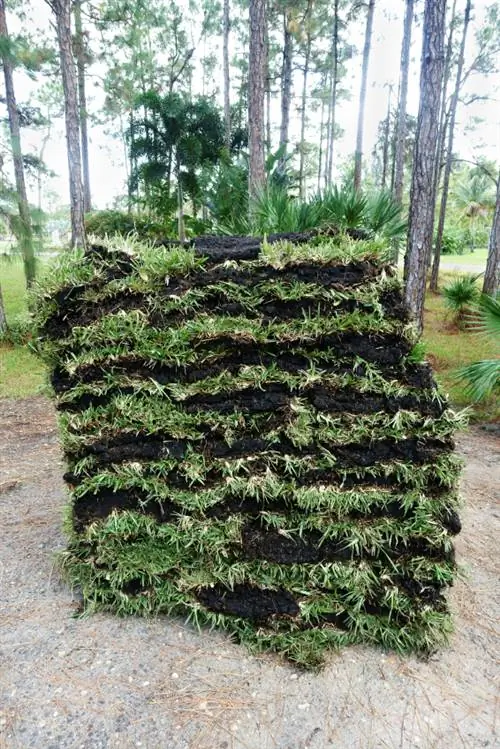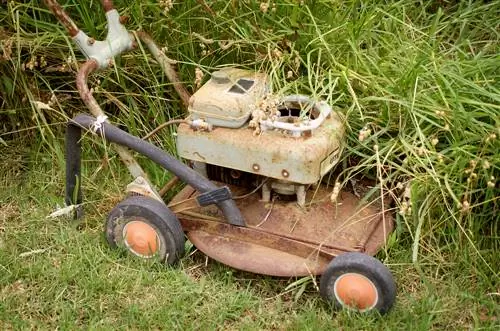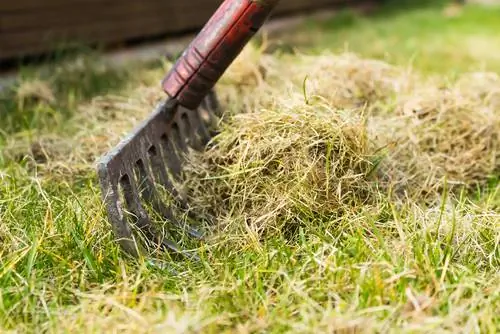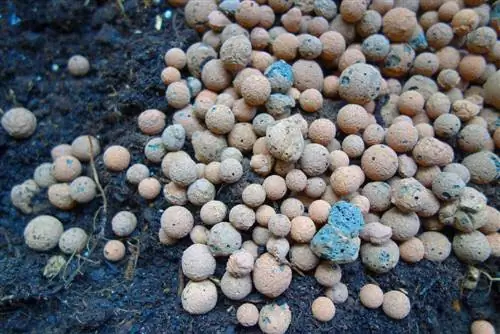- Author admin leonars@hobbygardeners.com.
- Public 2023-12-16 16:46.
- Last modified 2025-01-23 11:20.
Especially in summer, when mowing is frequent, considerable amounts of cutting are required depending on the size of the lawn. What is the best way to dispose of grass clippings? Tips for composting, mulching and shredding.
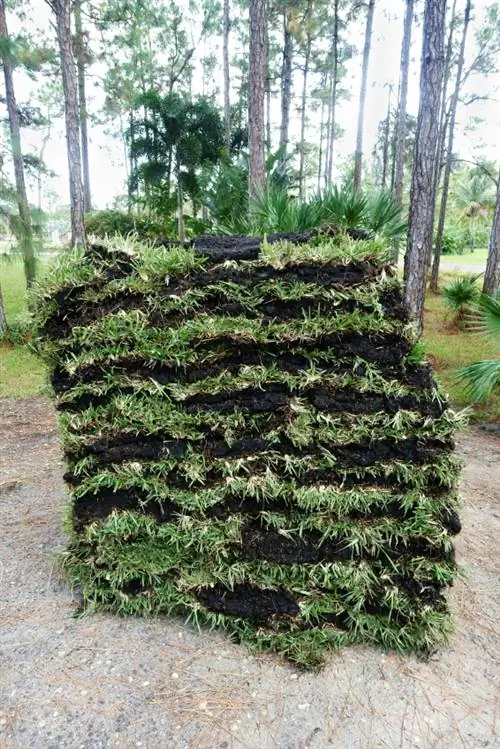
Different ways to dispose of lawn clippings
- Leave it on the grass
- Composting
- Use for mulching
- Dispose of with organic waste
Just leave the cut
The best and most sensible way to get rid of grass clippings is to simply leave them on the lawn after mowing.
However, this only works if you mow the lawn so often that the cut blades are a maximum of two centimeters long.
The advantage is not only that it is easy to dispose of, but also that you fertilize the lawn at the same time by cutting it.
Composting lawn clippings
Many garden owners believe that lawn clippings cannot be composted because the damp blades of grass stick together, rot and begin to smell.
If you spread the cutting on the compost and let it dry a little before disposing of it, it won't be a problem.
On the compost heap, the grass clippings should be mixed with other materials such as leaves, small twigs or, if necessary, some paper. It will then rot faster.
Mulch with grass clippings
Many plants in the garden love a layer of mulch because it prevents the soil from drying out, supplies it with nutrients and keeps weeds away.
Short lawn clippings are well suited as mulching material under shrubs and trees. You should chop very long stalks beforehand. Lawn mulch is particularly good for rhododendrons and conifers. In addition, you have less work pulling weeds.
For mulching, only use lawn clippings without inflorescences. Otherwise you will sow lawn in unwanted places.
Disposal with organic waste
If none of the options are possible, dispose of the grass clippings in the organic waste bin provided by the city cleaning department.
Some cities also offer places at certain times where grass clippings can be chopped and disposed of free of charge.
Tips & Tricks
Legally, lawn clippings are considered waste. You are not allowed to dispose of the cuttings in the wild, even if it is fallow land, meadows or forests. Significant fines are due for illegal disposal.

